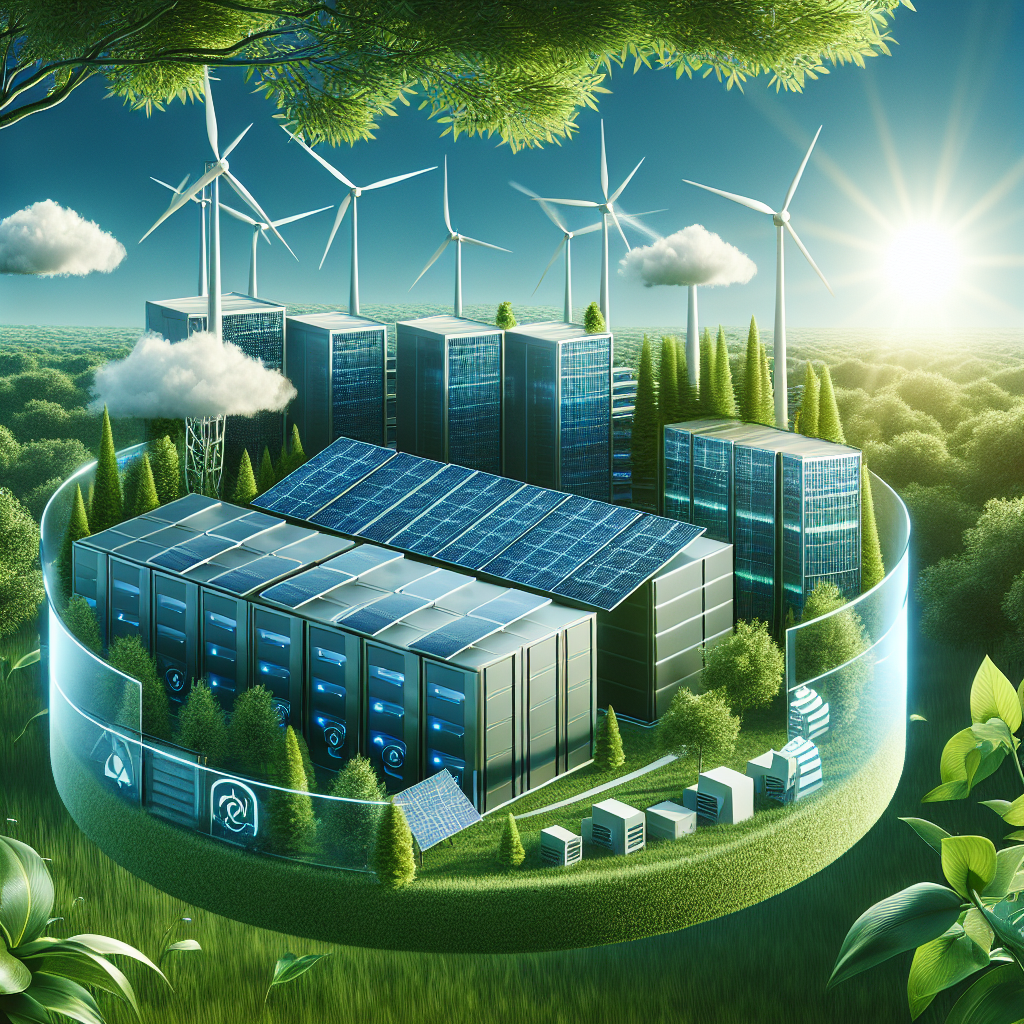In today’s digital age, data centers play a crucial role in storing and processing the vast amounts of data generated by individuals, businesses, and organizations. However, the environmental impact of these data centers has become a growing concern, with their high energy consumption and carbon emissions contributing to climate change. In response to this, many data centers are now adopting eco-friendly practices to reduce their environmental footprint and pave the way for a sustainable future.
One of the key ways in which data centers are becoming more environmentally friendly is through the use of renewable energy sources. Many data centers are now powered by solar, wind, or hydroelectric power, which helps reduce their reliance on fossil fuels and decrease their carbon emissions. By investing in renewable energy sources, data centers can not only lower their environmental impact but also save on energy costs in the long run.
In addition to using renewable energy, data centers are also implementing energy-efficient technologies to reduce their overall energy consumption. This includes using energy-efficient servers, cooling systems, and lighting, as well as implementing virtualization and consolidation techniques to optimize their resource usage. By adopting these energy-efficient practices, data centers can significantly reduce their environmental impact and lower their operating costs.
Furthermore, data centers are also focusing on improving their cooling systems to reduce their energy consumption. Cooling systems are essential for maintaining the optimal temperature within data centers to prevent overheating and ensure the smooth operation of servers. However, traditional cooling systems can be highly energy-intensive. To address this issue, data centers are now utilizing innovative cooling technologies such as liquid cooling, free cooling, and air-side economization, which are more energy-efficient and environmentally friendly.
Moreover, data centers are also implementing water conservation measures to reduce their water usage and minimize their impact on local water resources. This includes using water-efficient cooling systems, recycling water for non-potable uses, and implementing water-saving practices throughout their operations. By reducing their water consumption, data centers can help conserve this precious resource and contribute to a more sustainable future.
Overall, eco-friendly data centers are paving the way for a more sustainable future by reducing their environmental impact and promoting energy efficiency and conservation. As the demand for data storage and processing continues to grow, it is essential for data centers to prioritize sustainability and embrace eco-friendly practices. By doing so, data centers can not only contribute to the fight against climate change but also inspire other industries to follow suit in building a more sustainable world.


Leave a Reply